Remote Sensing of Hydrometerorlogical Hazads
Original price was: ₹18,309.00.₹14,647.20Current price is: ₹14,647.20.
ISBN: 9781498777582
Author/Editor: George P Petropoulos
Publisher: CRC Press
Year: 2018
2 in stock (can be backordered)
Description
Extreme weather and climate change aggravate the frequency and magnitude of disasters. Facing atypical and more severe events, existing early warning and response systems become inadequate both in scale and scope. Earth Observation (EO) provides today information at global, regional and even basin scales related to agrometeorological hazards. This book focuses on drought, flood, frost, landslides, and storms/cyclones and covers different applications of EO data used from prediction to mapping damages as well as recovery for each category. It explains the added value of EO technology in comparison with conventional techniques applied today through many case studies
Additional information
| Weight | 1.315 kg |
|---|
Product Properties
| Year of Publication | 2018 |
|---|---|
| Table of Contents | Section I: Remote Sensing of Drought 1. Drought and Remote Sensing: An Overview [Nicolas R. Dalezios] 2. Agricultural Drought Monitoring Using Satellite Soil Moisture and Other Remote Sensing Data over the Iberian Peninsula [Jose Martinez-Fernandez, Nilda Sanchez, and Angel Gonzalez-Zamora] 3. Drought Assessments by Coupling Moderate Resolution Imaging Spectroradiometer Images and Weather Data: A Case Study in the Minas Gerais State, Brazil [Antonio H. de C. Teixeira, Janice F. Leivas, and Gustavo Bayma-Silva] 4. The Added Value of Satellite Soil Moisture for Agricultural Index Insurance [Markus Enenkel, Daniel Osgood, and Bristol Powell] 5. Detecting the 2012 Drought in the Southeastern United States with Moderate Resolution Imaging Spectroradiometer- and Gravity Recovery and Climate Experiment-Based Drought Indicators [Ali Levent Yagci, Joseph A. Santanello, Matthew Rodell, Meixia Deng, and Liping Di] Section II: Remote Sensing of Frost and Sea Ice Hazards 6. Frost and Remote Sensing: An Overview of Capabilities [Nicolas R. Dalezios and George P. Petropoulos] 7. Remote Sensing of Sea Ice Hazards: An Overview [Mukesh Gupta] 8. Satellite Microwave Remote Sensing of Landscape Freeze-Thaw Status Related to Frost Hazard Monitoring [Youngwook Kim, John S. Kimball, and Jinyang Du] 9. Temperature Fluctuation and Frost Risk Analysis on a Road Network by Coupling Remote Sensing Data, Thermal Mapping, and Geographic Information System Techniques [Panagiota Louka, Ioannis Papanikolaou, George P. Petropoulos, Nikolaos Stathopoulos, and Ioannis X. Tsiros] Section III: Remote Sensing of Wildfires 10. Wildfires and Remote Sensing: An Overview [Nicolas R. Dalezios, Kostas Kalabokidis, Nikos Koutsias, and Christos Vasilakos] 11. A Review on European Remote Sensing Activities in Wildland Fires Prevention [David Chaparro, Merce Vall-llossera, and Maria Piles] 12. Remote Sensing of Fire Effects: A Review for Recent Advances in Burned Area and Burn Severity Mapping [Ran Meng and Feng Zhao] 13. Exploring the Relationships between Topographical Elements and Forest Fire Occurrences in Alberta, Canada [Masoud Abdollahi, Quazi K. Hassan, Ehsan H. Chowdhury, and Anil Gupta] 14. Quantifying the Interannual Variability of Wildfire Events across Portugal for the 2014-2015 Wildfires Using the Data from the European Forest Fire Information System [Aaron Mills and Daniel Colson] Section IV: Remote Sensing of Flood 15. Satellite Remote Sensing of Floods for Disaster Response Assistance [Guy J.-P. Schumann] 16. Usefulness of Remotely Sensed Data for Extreme Flood Event Modeling: A Study Case from an Amazonian Floodplain [Sebastien Pinel, Joecila Santos Da Silva, C. R. Fragoso Jr., J. Rafael Cavalcanti, Jeremie Garnier, Frederique Seyler, Stephane Calmant, David Motta Marques, and Marie-Paule Bonnet] 17. Large-Scale Flood Monitoring in Monsoon Asia for Global Disaster Risk Reduction Using MODIS/EOS Data [Youngjoo Kwak] 18. Introducing Flood Susceptibility Index Using Remote-Sensing Data and Geographic Information Systems: Empirical Analysis in Sperchios River Basin, Greece [Nikolaos Stathopoulos, Kleomenis Kalogeropoulos, Christos Polykretis, Panagiotis Skrimizeas, Panagiota Louka, Efthimios Karymbalis, and Christos Chalkias] 19. Satellite-Based Precipitation for Modeling Floods: Current Status and Limitations [Yiwen Mei, Efthymios, E. I. Nikolopoulos, and Emmanouil N. Anagnostou] Section V: Remote Sensing of Storms 20. Application of Remote-Sensing Images for Post-Wind Storm Damage Analysis [Sudha Radhika, Yukio Tamura, and Masahiro Matsui] 21. Analyzing Tropical Cyclones over India Using Precipitation Radar [Devajyoti Dutta, A. Routray, and Prashant K. Srivastava] 22. Radar Rainfall Estimates for Debris-Flow Early Warning Systems: Effect of Different Correction Procedures on the Identification of Intensity-Duration Thresholds [F. Marra, E. I. Nikolopoulos, J. D. Creutin, and M. Borga] Section VI: Remote Sensing of Landslides 23. A Review of Unmanned Aerial Vehicles, Citizen Science, and Interferometry Remote Sensing in Landslide Hazards: Applications in Transportation Routes and Mining Environments [Panagiotis Partsinevelos, Zacharias Agioutantis, Achilleas Tripolitsiotis, and Nathaniel Schaefer] 24. Landslide Susceptibility Assessment Mapping: A Case Study in Central Greece [George D. Bathrellos, Dionissios P. Kalivas, and Hariklia D. Skilodimou] |
| Author | George P Petropoulos |
| ISBN/ISSN | 9781498777582 |
| Binding | Hardback |
| Edition | 1 |
| Publisher | CRC Press |
You must be logged in to post a review.

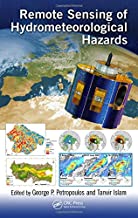
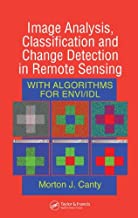
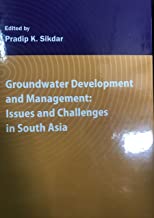
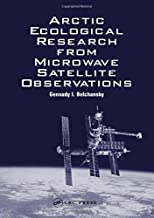
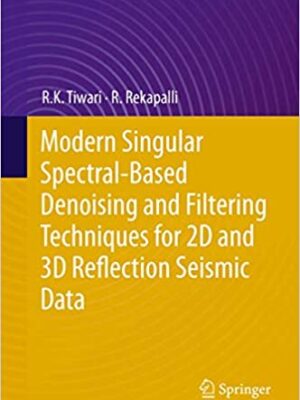
Reviews
There are no reviews yet.